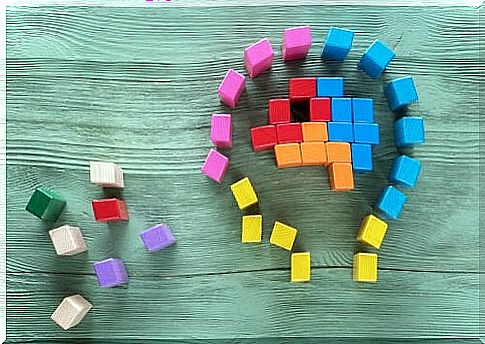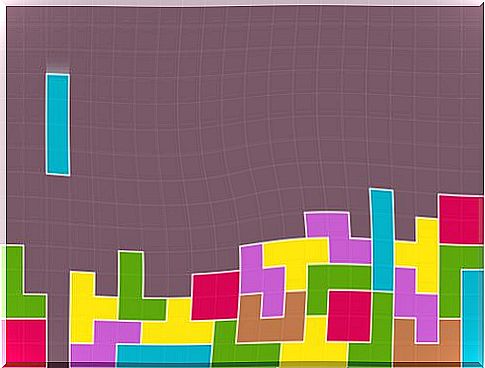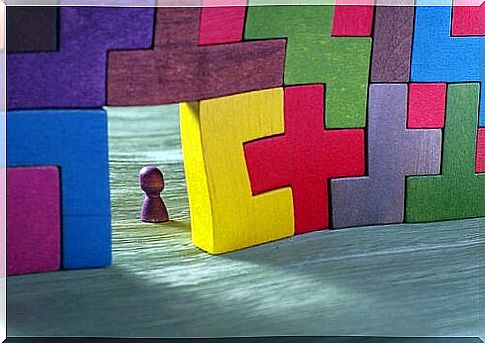Tetris Effect: What Is It All About?

The activities we carry out in everyday life can change our thinking. The more time we spend on something, the more it affects the way we see the world. In some cases, therefore, this influence can have significant effects, a dynamic known as the Tetris effect.
The Tetris effect takes its name from the well-known computer game in which different figures made up of four cubes have to be placed, so as not to leave spaces. It is one of the most addictive video games, to which people of all ages have devoted many hours of their time. According to some studies, this may have changed their minds.
In this article we will see what exactly the Tetris effect is and in what situations it can manifest itself. While this is nothing too dangerous, it can tell us a lot about how the mind works. Knowing this mental phenomenon will help us better understand its influence.
What is the Tetris effect?
Tetris was one of the most psychologically analyzed video games ever. The way it is designed has allowed us to better understand some processes of memory, attention and the way we store information. However, undoubtedly its most interesting effect is that of how we see the world.
Several researches have shown how playing Tetris for a long time can change our thoughts, the mental images we create and our dreams. People who devoted a lot of time to this activity ended up perceiving the world in a way similar to the video game.

Serial Tetris players surprised themselves by wondering how they could fit different objects in the real world. For example, they tried to better arrange supermarket shelves or visualized buildings as rectangles to fit together. As if that were not enough, there have been cases of hallucinations of imaginary shapes falling from the sky.
For others, the Tetris effect caused frequent dreams populated by the game pieces, or even hypnagogic hallucinations. None of these effects generated much disturbance to those affected, however researchers were fascinated by how a simple game can change our perception.
What is it due to?
According to some psychologists, the Tetris effect is nothing more than a matter of habit. Some players, spending many hours in front of this video game, got their mind used to seeing the world in the form of figures that can be fitted together. In this sense, it would be nothing more than a special kind of procedural memory.
On the other hand, various studies that have subjected the brain to magnetic resonance have found the direct effect that Tetris would have on the configuration of this organ. For example, an experiment carried out in 1994 by Okogaki and Frensch revealed that playing 12 sessions of 30 minutes each could make the brain’s gray matter denser.
This component of the brain is directly linked to intelligence, cognitive flexibility and other abilities. Therefore, it was concluded that playing Tetris improves our cognitive abilities. In this sense, it would be very positive for those who present it.

Other cases of the Tetris effect
The change in the way we think and perceive the world is not only due to the game of Tetris. There are many activities capable of altering the way we process information.
Thus, some activities such as mounting a Rubik’s cube at full speed (a phenomenon known as speedcubing ) or using a programming language can change our visual perception, in the first case, or the way we use logic, in the second. The same happens with math: at an advanced level, it can change the way you understand reality.
This effect can acquire other connotations as well. For example, the sensation of arriving on land after a long boat trip can also be a type of Tetris effect. Research on this has just begun, and the first findings on this effect are giving us an idea of the true potential of our brains.









